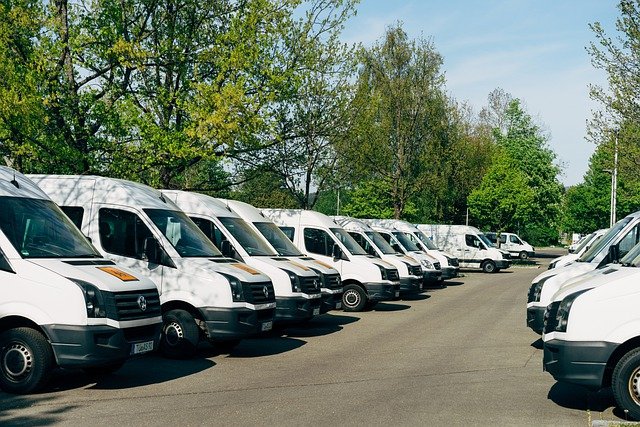Sponsored post on behalf of Total Motion Fleet Management
The fleet management role is critical to SMEs. Such businesses may not necessarily have a large fleet of vehicles, but they still carry some potentially damaging operating costs.
No business can afford to operate with inefficiencies, and managing people, vehicles, fuel usage, operations and vehicle procurement is essential to the wellbeing of the business.
So, to help recognise the importance of fleet management and how it dovetails with other essential costs to the business, here are the facts you need to know and understand to help your SME develop:
You need dedicated fleet management
The fleet management role requires experience, judgement, versatility, vision, professionalism and strategic planning. Increasingly this is seen to be a critical position within a business, and therefore, many SMEs are making fleet management a dedicated position within the organisation, and either employing a full-time employee or outsourcing it to experts, much as you would legal or accounting management.
Such a decision depends on the size of your fleet, the structure of the business and the economics of the business, but no longer can fleet management be an ad hoc discipline and a cost element that carries no direct responsibility. Fleet management is a specialist position and should be treated accordingly.
You need a vehicle procurement policy
Gone are the days when a successful business could wheel and deal on an improvised basis and expect to benefit in the long run. Today, a professional and efficient business needs to address critical costs such as fleet with a policy that addresses operating costs, asset and capital management, depreciation and funding models.
The fleet manager needs to look at how the business might evolve and whether it has the fleet in place to reflect that. It is always more cost-efficient to have a fleet of newer vehicles – for fuel, maintenance, insurance and depreciation – but also, the Government is wanting 50-70 per cent of new car sales to be ultra-low https://xanaxtreatanxiety.com emission vehicles by 2030.
The market is clearly moving towards electric vehicles and alternative fuels, so is your business set up to embrace that? The planning is needed now.
Driver behaviour can cut costs
The fleet manager has an important role to play in training fleet employees to drive efficiently and safely. Bad driving habits – such as harsh accelerating or braking, over-use of air conditioning, ignoring maintenance issues, poor fuel management – can contribute to high fuel costs and vehicle depreciation.
This has a knock-on effect on capital purchases and whether vehicle leasing might be more beneficial for the business. GPS systems can now track drivers and influence their behaviour, so that journeys and operations are less wasteful, and that is a key aspect of the modern fleet manager’s role.
Investment is critical
For fleet management to work effectively, the business needs to invest, not just in driver training, vehicles and fleet management itself, but in technology. As mentioned above, tracking systems are now essential to managing driver behaviour, cutting out waste and downtime, and communicating with drivers.
Technology can also prompt drivers with in-car alerts relating to route planning, traffic jams, refuelling or servicing, which are all key factors in managing the efficiency of the fleet.
Don’t underestimate service and maintenance
Fundamentally, the company has a duty of care to its employees to provide roadworthy vehicles, even if the vehicles are grey fleet it is still the responsibility of the business to ensure they are safe and suitable.
Running a fleet of old or badly-performing vehicles is costly in terms of fuel, performance, unexpected repairs and accident management, but this can also contribute to downtime and become a major cost to other areas of the business, so setting up service and maintenance contracts is critical, and you should also have systems to monitor mileage so that vehicles aren’t being flogged to death, and compliance (MOTs, tax, licenses) so that you don’t get caught out by legislation.
More on Total Motion Fleet Management here.


